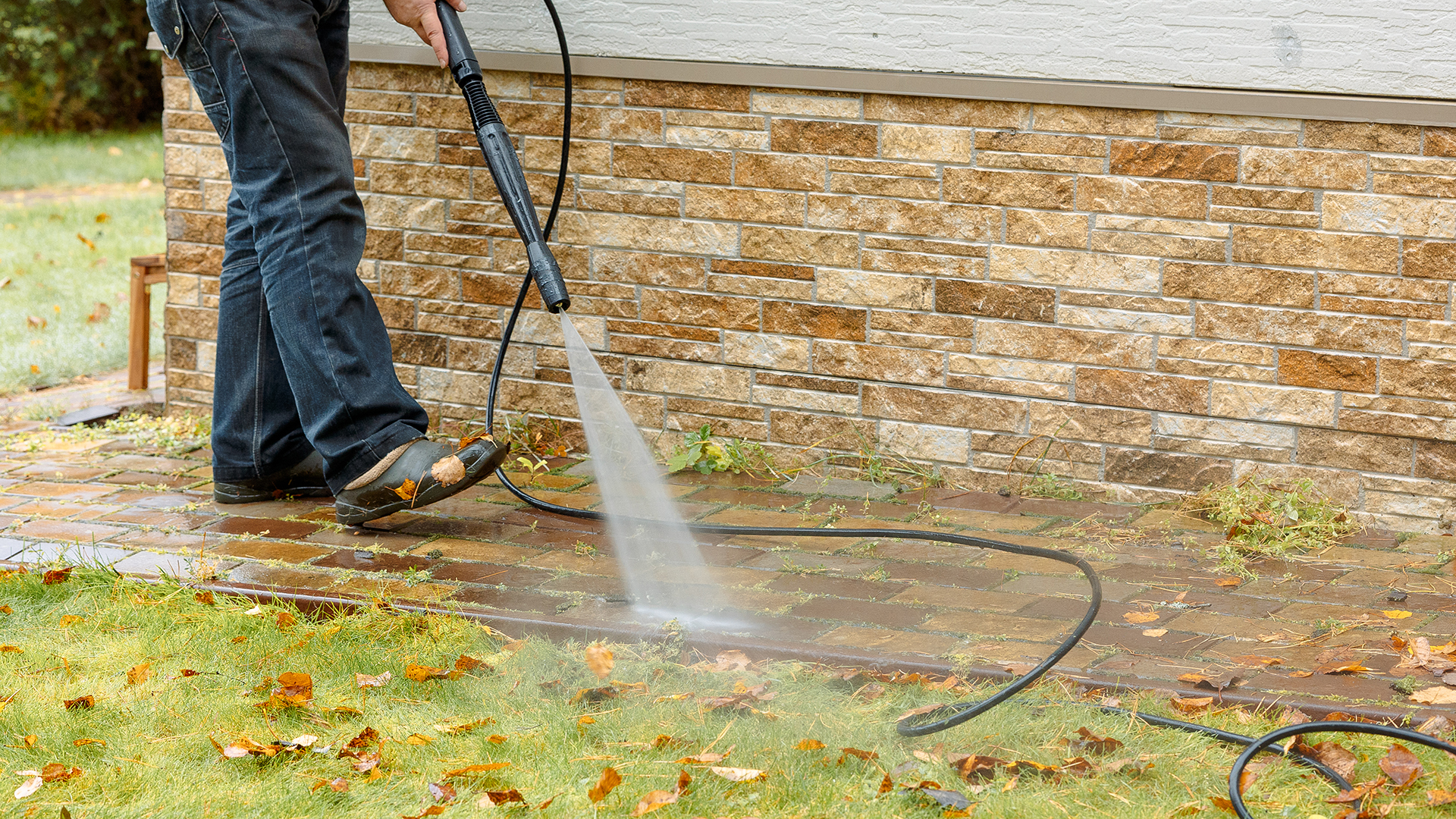If you’re a fan of home improvement projects, a pressure washer is a trusty tool that will blast away grime so that surfaces look as good as new. However, sometimes leakages and breakages can arise that will have you wondering what to do when your pressure washer is leaking oil.
But if you run into problems with your pressure washer, you may be confused about where to start. Here, we’ll walk you through exactly what to do when your pressure washer is leaking oil so you can get it working again quickly. Prevention is better than cure, so you’ll learn how to maintain your pressure washer to reduce the risk of issues.
While you may be alarmed by a leak, it’s usually straightforward to fix with basic troubleshooting. If you’re struggling to resolve the problem, seek advice from a pro. Alternatively, if it's time for a replacement, researching the best pressure washers will help you make an informed decision. And if you're already set on purchasing a new outdoor tool, finding the best price with these cheap pressure washer deals will make the investment a little bit easier.
For now, here’s what to do when your pressure washer is leaking oil.
What to do when your pressure washer is leaking oil
Scott Reid, Exterior Home Expert at Angi, says, “If your pressure washer isn’t working properly, take it to a repair tech and let them assess the issue. You may have to repair or replace a specific part, or it might be time to purchase a new pressure washer."
Wondering what to do when your pressure washer is leaking oil? Follow these simple troubleshooting steps to address the issue.
First, you’ll need to identify the source of the leak. Drain plugs are a common source of problems, according to manufacturer Simpson. Tighten the drain plug to see if that resolves the issue.
Rubber seals or o rings are common culprits behind leaks. Check for damage and replace tired seals. Use one that fits your model or you risk further problems.
Other sources of leaks may require professional help. Consider calling a pro if you discover a leak where the engine parts are bolted together or in the pump.
You can reduce the risk of leaks and avoid costly repairs by taking good care of your pressure washer. That’s why it’s crucial to perform regular maintenance checks for signs of damage. Focus on assessing the seals for damage and cleaning out trapped debris. Most manufacturers provide step-by-step guides for your specific model.
If you find the upkeep a faff, consider opting for a low-maintenance electric model when you come to replace your pressure washer.
Discover more guides for the garden…
Best chainsaws
Best leaf blowers
Best patio heaters
Best inflatable hot tubs

